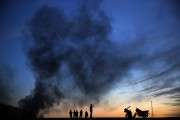 Wednesday, 29 October, 2014 , 16:11
Wednesday, 29 October, 2014 , 16:11Nytimes.com | By MEYSA ABDO (Op-Ed Contributor)
Turkey's Obstruction of Kobani's Battle Against ISIS
KOBANI, Syria — Since Sept. 15, we, the people of the Syrian town of Kobani, have been fighting, outnumbered and outgunned, against an all-out assault by the army of the Islamic State, also known as ISIS.
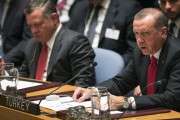 Thursday, 16 October, 2014 , 12:28
Thursday, 16 October, 2014 , 12:28Al-monitor.com
Turkey failed on Oct. 16 to win the coveted nonpermanent seat at the UN Security Council that it hoped would reinforce its influence in regional affairs, which has seriously dwindled in recent years. The result is a disappointment for President Recep Tayyip Erdogan and Prime Minister Ahmet Davutoglu, who hoped for a victory at the United Nations to counter claims that their policies have left Turkey isolated internationally.
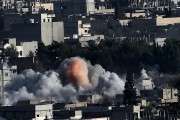 Saturday, 11 October, 2014 , 00:58
Saturday, 11 October, 2014 , 00:58Washingtonpost.com | By Editorial Board
THE OBAMA administration seems to have settled on a blame-Turkey defense for a possible humanitarian catastrophe in the Syrian city of Kobane. It’s convenient and not entirely wrong. But it leaves out a big chunk of the story.
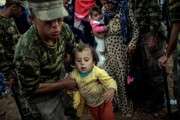 Monday, 6 October, 2014 , 17:53
Monday, 6 October, 2014 , 17:53ISTANBUL — My generation of Turks grew up hating Kurdish separatists. Instead of questioning why Kurds weren’t allowed to speak their own language, live in their own villages or sing their own songs, we blamed the Kurdistan Workers Party, or P.K.K., which had been waging a guerrilla war against Turkey since 1984, for all of Turkey’s woes.
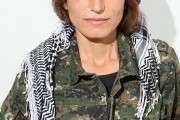 Saturday, 4 October, 2014 , 00:42
Saturday, 4 October, 2014 , 00:42Marieclaire.com | By Elizabeth Griffin
There's a group of 7,500 soldiers who have been fighting an incalculably dangerous war for two years. They fight despite daily threats of injury and death. They fight with weapons that are bigger and heavier than they are against a relentless enemy. And yet they continue to fight.


